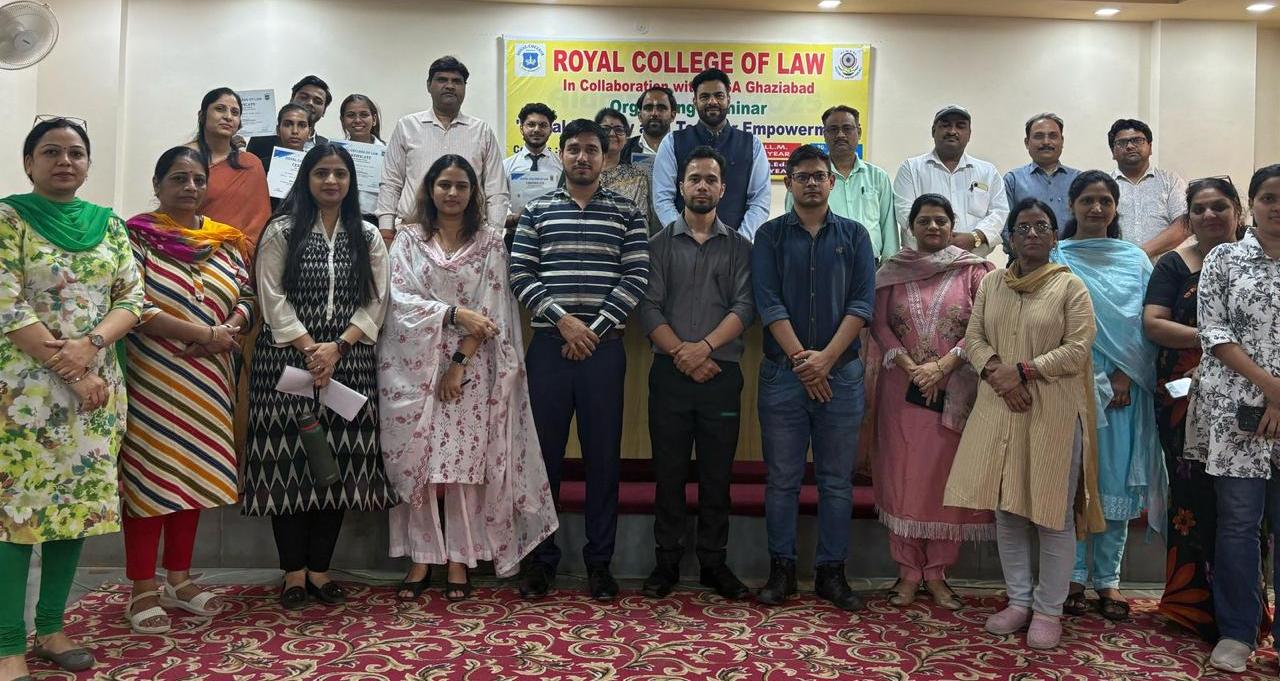Academic Facilities
Library Facility
The library at Royal College of Law (RCL), Ghaziabad is a well-established resource center managed by a qualified and experienced Librarian. Designed to support the academic and research needs of students and faculty, the library offers a spacious reading room with a seating capacity for over 100 students. The collection comprises more than 10,000 books, including law reports, periodicals, and Indian and foreign journals, catering specifically to the legal curriculum. The library is fully computerised, ensuring efficient cataloging and easy access to resources. Xerox and printing facilities are also available for the convenience of users. Students at RCL benefit from one of the finest academic libraries in the region. The facility includes both silent study zones and collaborative group work areas, promoting a balanced and productive study environment. Additionally, subject experts are available to offer personalized academic support and guidance in specific areas of law.

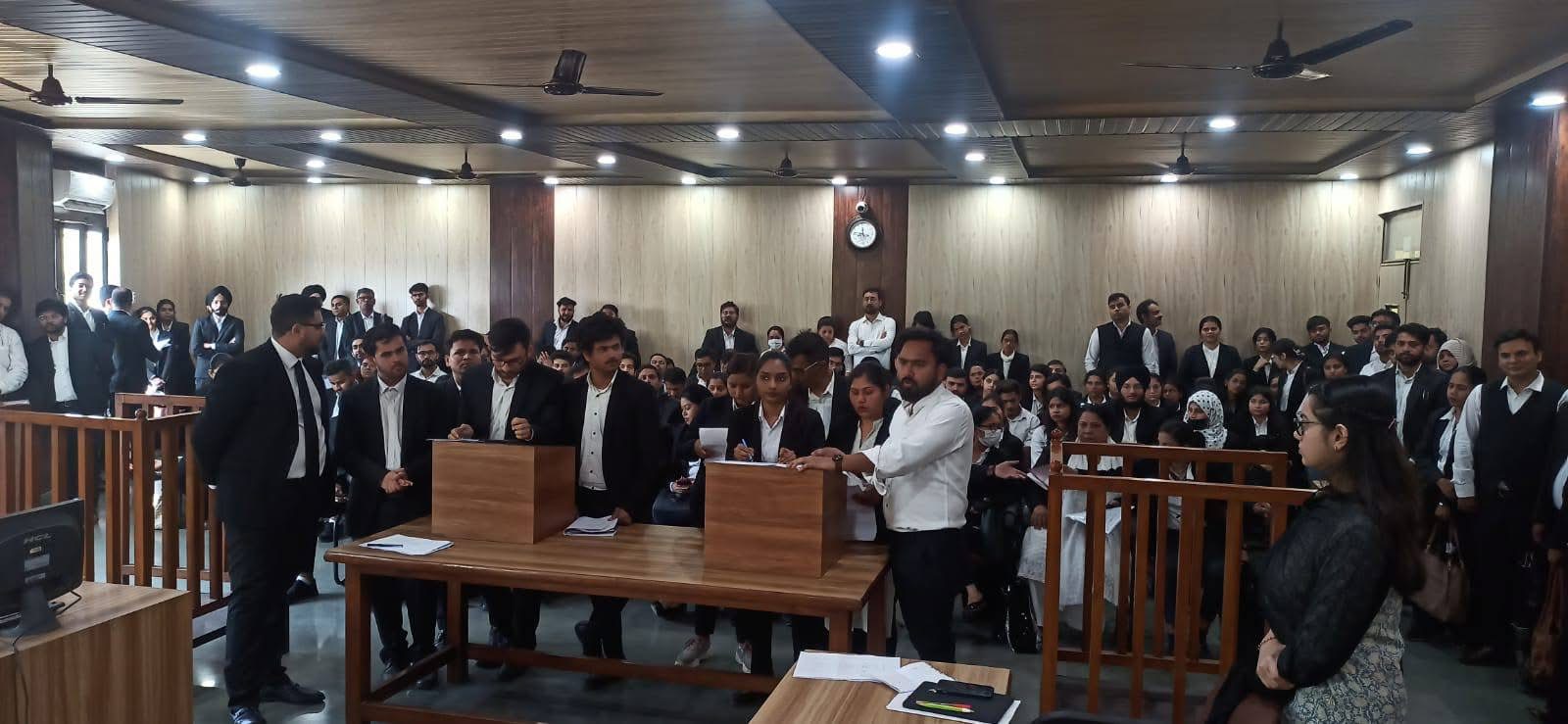
Moot Court
The Moot Court at Royal College of Law serves as a vital academic exercise designed to refine students’ legal research, argumentation, and oral advocacy skills. It simulates real court proceedings, providing law students with a platform to engage in case analysis, legal drafting, and presentation of arguments before a panel of judges. Participation in moot court activities fosters self-confidence, critical thinking, and public speaking abilities. To excel, students must develop a generalist’s ability to analyze legal issues from a broad perspective, while also cultivating a specialist’s expertise in the specific area of law relevant to the case. A successful mooter is expected to be well-versed in legal principles, statutory interpretation, and precedents set by the Hon’ble Supreme Court and High Courts. Keeping up-to-date with the latest case laws and judicial trends is essential for constructing persuasive arguments and gaining a comprehensive understanding of the subject matter. Regular moot court sessions are conducted to help students prepare for real-world litigation challenges and judicial service examinations.
Placement
Placement is a vital and integral component of the institution’s academic framework. The Placement Cell at Royal College is well-equipped with comprehensive infrastructure to facilitate smooth and efficient placement activities. It functions year-round to ensure students are well-prepared for recruitment processes and career opportunities. Regular training programs, workshops, mock interviews, personality development sessions, and resume-building exercises are conducted to enhance students’ employability and soft skills. The cell maintains strong and active linkages with the corporate sector, legal firms, industries, and research organizations, inviting seasoned professionals and HR leaders for guest lectures, career guidance, and recruitment drives. The Placement Cell is committed to providing students with maximum exposure to job opportunities by organizing on-campus recruitment drives, internship placements, and industry interaction sessions, thereby bridging the gap between academia and the professional world.
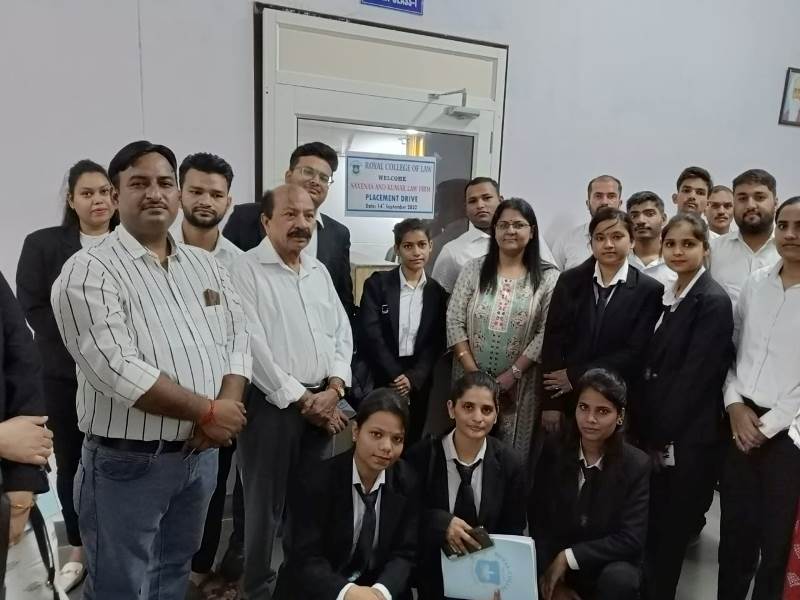
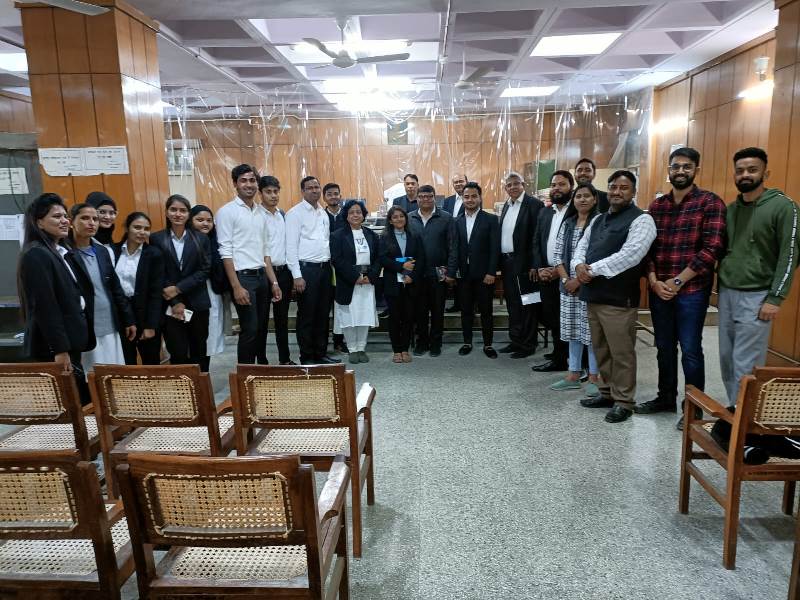
Internship
At Royal College of Law, we emphasize experiential learning through a structured internship program that bridges academic knowledge with real-world application. Our students are encouraged to undertake live projects, including business analysis, developing new business plans, conducting field surveys, and engaging in entrepreneurial initiatives during their academic journey. These internships are designed to provide hands-on experience, sharpen practical skills, and cultivate a deeper understanding of the professional environment. By working on real-time challenges, students gain valuable exposure to the dynamics of the corporate, legal, and social sectors—helping them become well-rounded professionals ready to face future challenges.
Lok Adalat Visits
As part of our commitment to practical legal education, Royal College of Law regularly organizes student visits to Lok Adalats (People’s Courts). These visits provide students with first-hand exposure to alternative dispute resolution mechanisms and foster an understanding of how justice is delivered at the grassroots level.
Students observe real-time proceedings, including settlement of civil disputes, family matters, and petty criminal cases, under the guidance of faculty and legal experts. Such exposure not only enhances their procedural knowledge but also cultivates a sense of social responsibility and legal empathy.

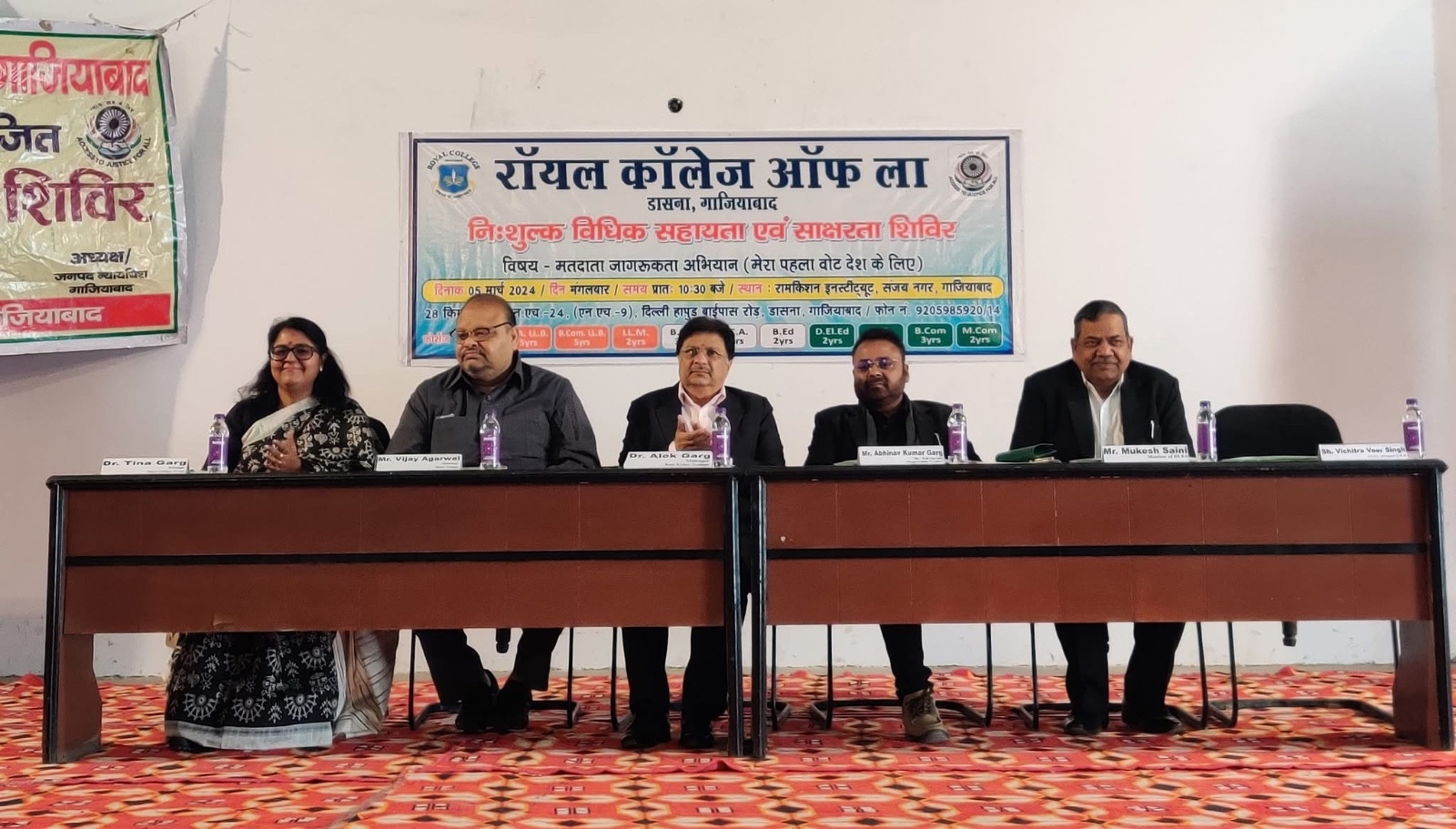
Legal Aid Clinic
Our fully functional Legal Aid Clinic, established under the guidance of the District Legal Services Authority (DLSA), Ghaziabad, is a cornerstone of our social outreach program. The clinic offers free legal assistance and counselling to the economically and socially underprivileged sections of society.
Staffed by trained faculty and law students under expert supervision, the clinic aims to promote legal awareness, protect fundamental rights, and ensure access to justice for all. Students gain invaluable experience in client interaction, legal drafting, and advisory roles, preparing them for future legal practice with a humanitarian perspective.
Seminars and Workshops
To ensure academic excellence and continuous professional development, Royal College of Law hosts regular seminars, workshops, and guest lectures on diverse legal, socio-political, and constitutional issues. These events feature eminent judges, senior advocates, academicians, and legal scholars from across the country.
The seminars aim to create a platform for intellectual discourse, critical thinking, and knowledge exchange, helping students stay abreast of emerging legal trends and judicial pronouncements. Through active participation, students sharpen their analytical, presentation, and public speaking skills, preparing them to become future leaders in the legal field.
